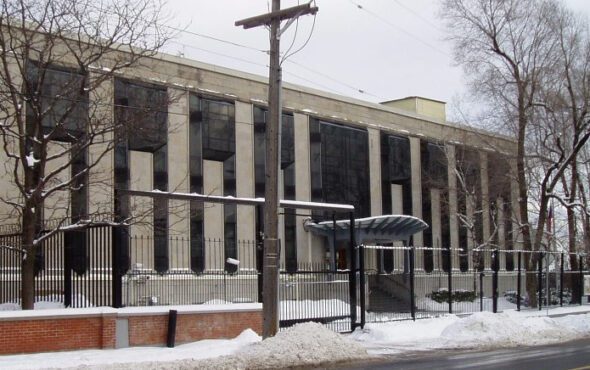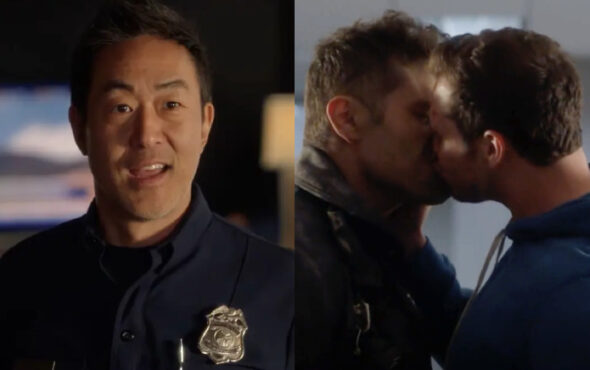
The Russian embassy in Canada is facing backlash from LGBTQ+ activists after they posted an offensive homophobic tweet.
On 25 November, the government agency uploaded a photo of a Pride flag in the middle of a red prohibition sign with the caption: “It is all about family. Family is a man and a woman and children.”
Shortly after posting the harmful tweet, an array of activists and political officials slammed the embassy in various posts on social media.
One person wrote: “The Russian Embassy in Canada is now actively spreading hate against our LGBTQ+ community. Is it time for some diplomatic expulsions?”
Another user tweeted: “So, someone at the Russian embassy just woke and decided to be homophobic?”
The offensive tweet came a day after Russia’s lower house parliament voted to extend the country’s archaic ‘gay propaganda law’ to all adults.
Under the proposed legislation, which had its final reading on 24 November, citizens who are caught promoting “non-traditional” values could be fined up to 400,000 rubles (£5,600).
If legal entities break the aforementioned law, they could be fined up to five million rubles (£70,000), with foreign individuals facing up to 15 days in jail or deportation.
In response to the backlash from Canadian citizens, the embassy released a statement that seemingly doubled down on its anti-LGBTQ+ tweet.
“Canada and a range of other States-supporters of the neoliberal agenda are deliberately distorting the reality by conflating the concepts of individual sexual preferences and universal human rights,” they said.
“Fortunately, there are no universally acknowledged international documents in place that would establish such a status for any relations that are different from a traditional family structure (a kind reminder that we are considering a natural family of procreation, which refers to a social unit of two male and female parents and their potential children).”
Over the last few years, LGBTQ+ individuals in Russia have faced persecution from the country’s government despite homosexuality being legal.
Under the country’s original ‘gay propaganda law’, which Vladimir Putin signed in 2013, Pride marches and media with LGBTQ+ themes have been banned.
In addition to the country’s various methods of censorship, Russia also has no laws in place that prohibit hate crimes based on sexual orientation, which leaves LGBTQ+ citizens at risk.
Lol the Russian embassy in Canada decided to block comments and has been on a tirade of homophobic tweets. Can’t believe this is real. Quite a pathetic display from an official government account, but such is the world we live in now. https://t.co/5bq46Tl895
— Vic in the middle (@RotcivArraz) November 26, 2022



